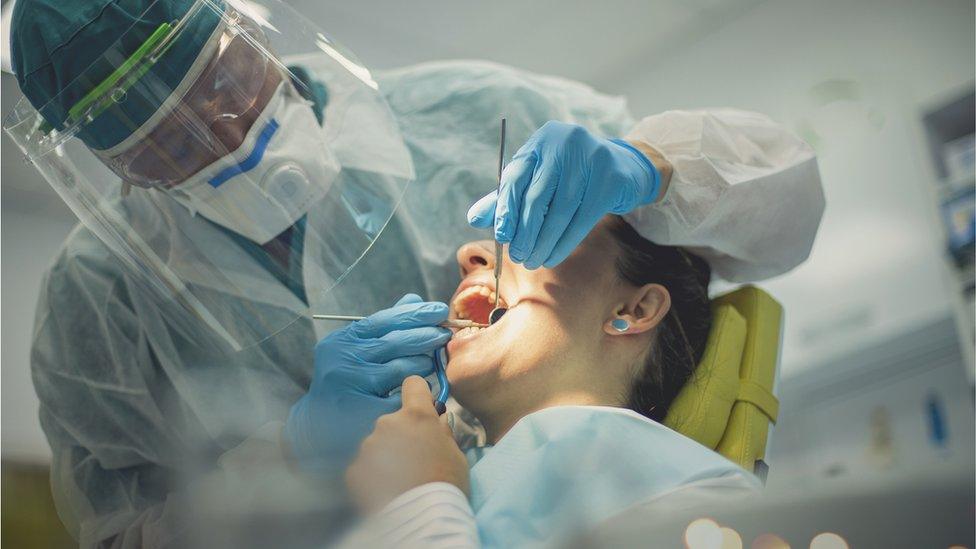Four in five of Scotland's dentists refuse new NHS patients
- Published
- comments
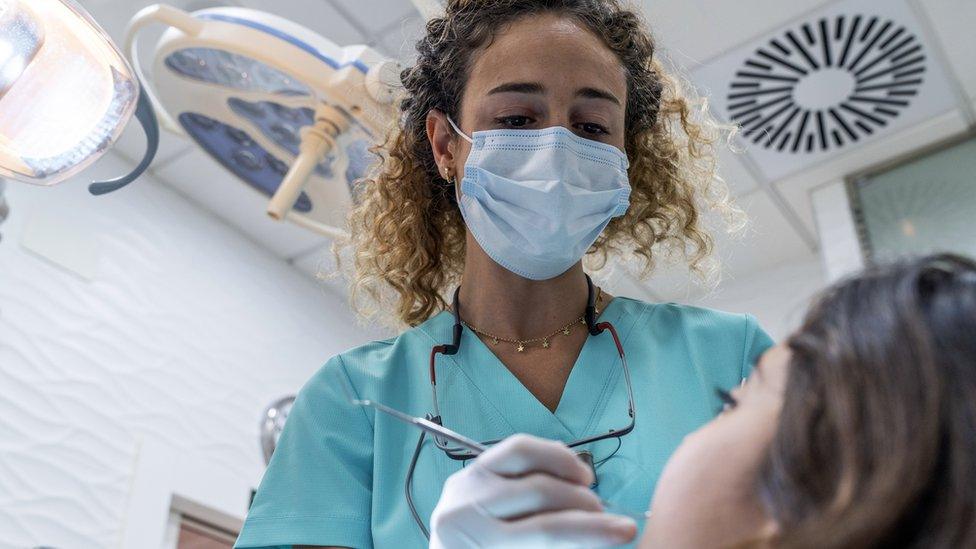
Four out of every five NHS dentists in Scotland are not accepting new adult patients for treatment on the health service, a BBC investigation has found.
Our researchers could not find any dentists taking on adult NHS patients in nine local authorities.
Meanwhile, nearly 80% of NHS practices were not accepting new child patients.
The Scottish government said that more than 95% of the population were registered with an NHS dentist.
It added that the dental workforce in Scotland (54 dentists per 100,000 population) was stronger than in England (42 per 100,000 population).
However, the BBC has heard from people in Scotland who say they have been de-registered from their dental practice.
BBC News contacted nearly 7,000 NHS practices across the UK - believed to be almost all those offering general treatment to the public.
The British Dental Association (BDA) called it "the most comprehensive and granular assessment of patient access in the history of the service".
While NHS dental treatment is not free for most adults, it is subsidised.
Across the UK, 90% of NHS practices were not accepting adult patients and 80% were not accepting new child patients.
In Scotland, the figures were 82% and 79% respectively.
Meanwhile, 39% of practices in Scotland said they had an open waiting list.
Our researchers were unable to find any practices taking on new adult or child NHS patients in Dumfries and Galloway, Dundee, Midlothian, Moray, Orkney, South Ayrshire and Western Isles.
They were also unable to find practices taking on adult NHS patients in Angus and Inverclyde - while both areas had one practice accepting child NHS patients.
Sorry, your browser cannot display this map
However, Scotland had significantly better access to NHS dentistry for adults than the other UK nations, with 18% of practices taking on new health service patients.
Wales, England and Northern Ireland had broadly similar rates of access, with 7%, 9% and 10% respectively.

'I don't smile as much as I used to'
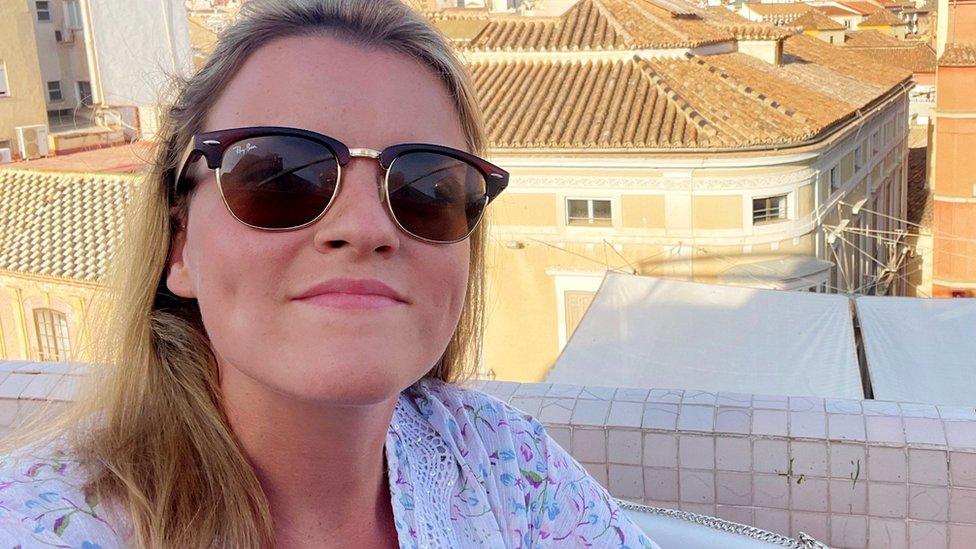
Peri McMillan said she does not feel comfortable with herself because of the condition of her teeth
After visiting a dentist she found online, Peri McMillan was told she needed root canal treatment - but they wouldn't cover it through the NHS.
The 23-year-old from Glasgow said she couldn't afford the £1,180 she was quoted for the procedure plus a tooth polish.
"I earn just over £1,000 a month so that would be my wages gone - it's ridiculous," she said.
Peri said she sometimes covers her mouth when she speaks and does not smile or laugh as much as she used to.
"I'm not comfortable in myself," she said. "My teeth could be a lot cleaner and I've got one of my teeth half rotted away.
"I think about it when I wake up in the morning and if I'm just sitting during the day - it weighs on my mind."
In Peri's home city of Glasgow, the BBC found 41 out of 119 practices (34%) were accepting new adult NHS patients. Though not an optimistic figure, it is nevertheless one of the highest rates our researchers found in the UK.
But Peri said because she is a care worker, she will struggle to find the time to secure a new dentist while doing 12-hour shifts.


The Scottish government has pledged to abolish all NHS dental charges by the end of this parliament. And so far, when it comes to access, Scotland is in a better position than other parts of the UK.
The vast majority of people are registered with an NHS dentist and a higher proportion are still accepting new patients.
But that doesn't tell the full story.
Dentistry has always been a mixture of private and NHS patients. But for a number of years now, the traditional "high street dentist" has been changing.
Covid has not helped, with many still having to prioritise appointments as they try to clear the backlog. But dentists are paid by the government for every procedure they carry out and many say the financial support is not enough to make NHS work sustainable.
At the same time, increasing numbers of practices are being taken over by commercially-minded owners who are not obliged to take on new NHS patients.
Growing numbers of people have been getting in touch with me to say their NHS dentist has de-registered them and are now only taking private patients.
It may be that 95% of Scots are still registered with an NHS dentist but if only 18% of practices are taking on new patients, it could be a very different story in a few years time.

In June, dentists accused the Scottish government of "pulling away the life support" from the service with its plans to reduce payment rates.
In light of the BBC figures, the British Dental Association has again called on the Scottish government to give short-term funding support to dentists to tackle the Covid backlog.
They also want to see a new, long-term model for NHS dentistry.
David McColl, who chairs the BDA's Scottish dental practice committee, said: "The Scottish government promised free NHS dentistry for all, but the public are now living with the harsh reality.
"You can't run a health service on soundbites and slogans. Ministers need to take a long, hard look at the evidence and bring forward the reforms and resources we need to deliver for patients across Scotland."
A spokesperson for the Scottish government added: "The number of people using dentists has risen sharply since Covid restrictions were reduced - a trend that is projected to continue in the coming months - meaning backlogs can be cleared and more people can access these vital services.
"The longer-term trend shows an increase of 32% in dentists providing NHS dental services for the period 2007 to 2022 despite the incredibly challenging pandemic period, with disruptions to the education and training of dentists."
Related topics
- Published8 August 2022
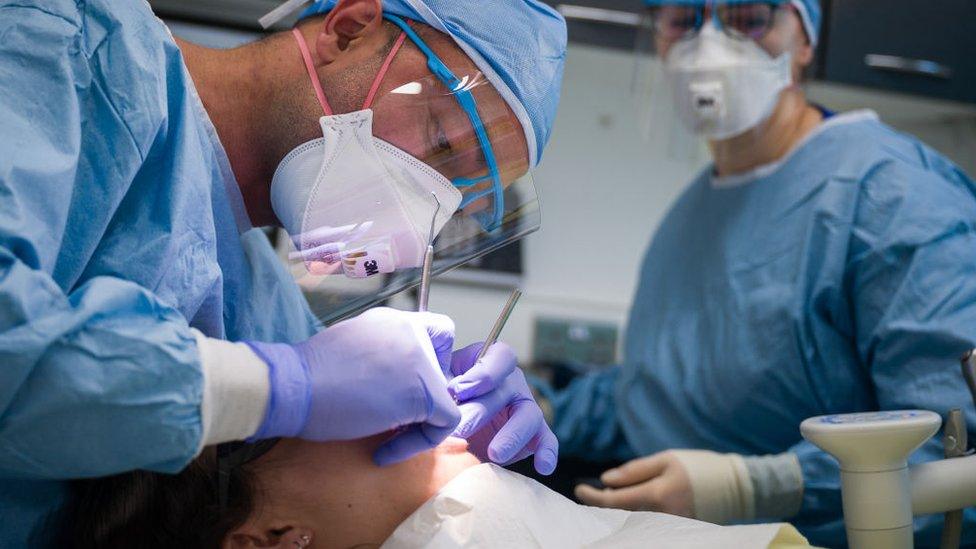
- Published9 May 2022
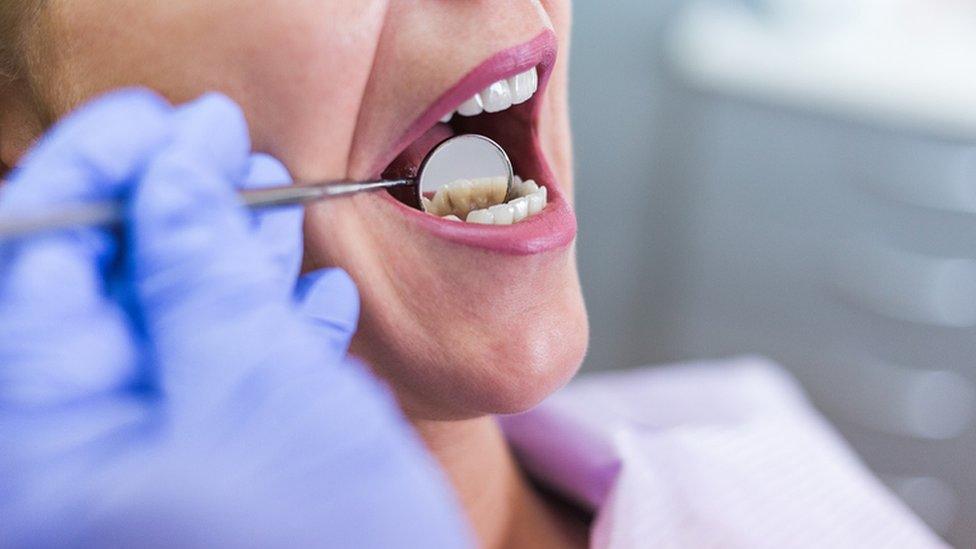
- Published26 April 2022
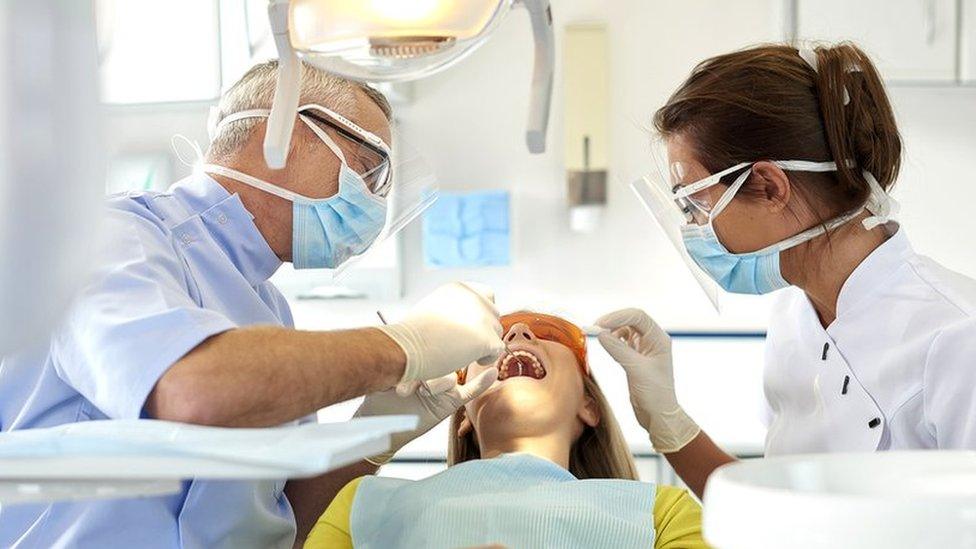
- Published16 February 2022
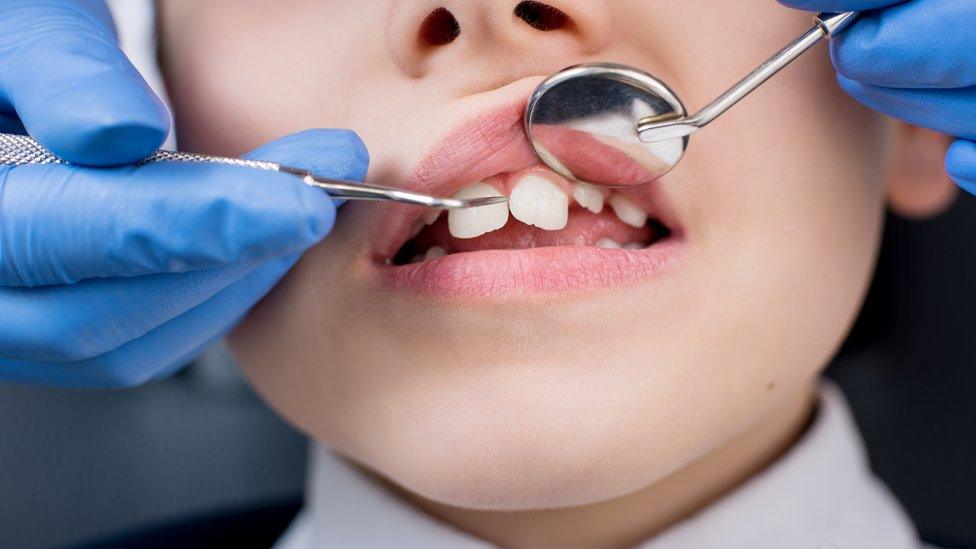
- Published28 June 2022
